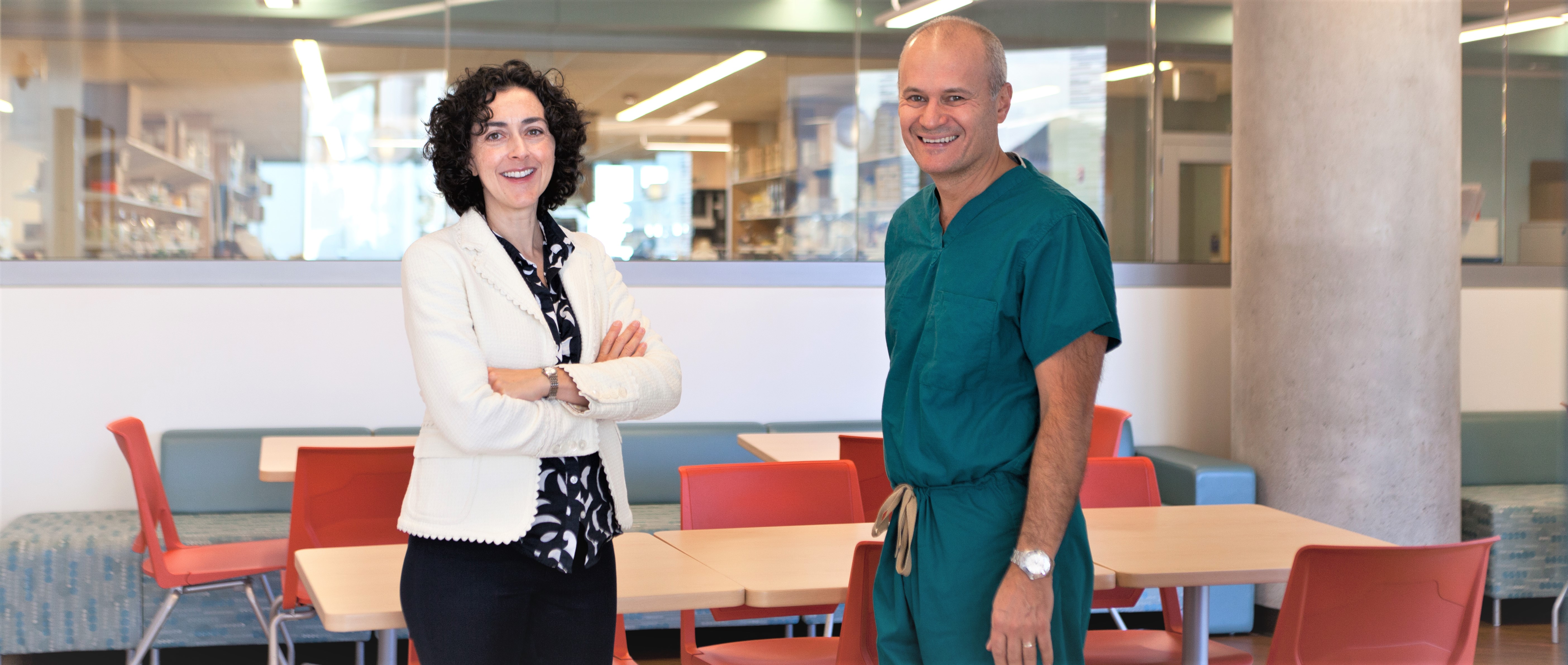Bariatric Surgery Improves Outcomes for Obese Teens
Research By: Stavra Xanthakos, MD, MS | Thomas Inge, MD, PhD
Post Date: June 28, 2019 | Publish Date: Jan. 14, 2016

“If sustained, the improvements seen in weight, blood sugar, kidney function, blood pressure, and lipid levels may translate into fewer strokes, heart attacks and other disabilities later in life.”
—Thomas Inge, MD, PhD
In the largest and most comprehensive analysis of its kind, researchers led by Cincinnati Children’s found that adolescents who underwent bariatric weight-loss surgery won in three key ways.
They showed significant improvements in weight, cardiometabolic health, and weight-related quality of life.
The study involved more than 80 researchers nationwide and showed that bariatric surgery reverses type 2 diabetes in a remarkable 95 percent of teens.
One more number of note: There are approximately 4.4 million severely obese children and adolescents in the U.S. An estimated 1,500 to 2,000 adolescents undergo surgical weight-loss procedures each year, and surgery in pre-adolescents is becoming more common.
The study, published Nov. 6, 2015, in The New England Journal of Medicine, did not have the advantage of many precedents. Most prospective studies of bariatric surgery outcomes focus on adult cases.
What little research did exist on teens provided grim findings: only 2 percent of severely obese teenagers can lose weight and keep it off without surgery. Many who undergo surgery still struggled to get to and maintain a healthy weight.
For many obese teens, the path to adulthood is an emotional cul-de-sac. The more weight you gain, the worse you feel, and the more weight you gain. The authors noted that between 2003 and 2009, bariatric surgical cases among teens doubled nationally to 1,600.
“The remission rates for medical conditions such as diabetes and hypertension are greater than those we see in many studies of adults who had long-standing obesity before bariatric surgery,” says Thomas Inge, MD, PhD, the study’s principal investigator and lead author.
As surgical director of the Surgical Weight Loss Program for Teens at Cincinnati Children’s, Inge is convinced that early interventions are essential.
“If sustained,” he says, “the improvements seen in weight, blood sugar, kidney function, blood pressure, and lipid levels may translate into fewer strokes, heart attacks and other disabilities later in life.”
TYPE 2 DIABETES FADES, NORMAL KIDNEY FUNCTION RETURNS
The New England Journal publication coincided with the team’s presentation at The Obesity Society annual meeting in Los Angeles. The data for the study comes from the long-running Teen-Longitudinal Assessment of Bariatric Surgery (Teen-LABS) project. The consortium involves five clinical centers, led by Cincinnati Children’s.
The latest findings involved 242 severely obese adolescents, ages 13 to 19, who had an average, pre-surgery weight of 325 pounds. Three years after surgery, average weight had decreased by more than 90 pounds, or 27 percent.
In addition to the dramatic reversal of type 2 diabetes, 86 percent of patients saw a normalization of kidney function. Hypertension was corrected in 74 percent of cases. Lipid abnormalities were reversed in 66 percent.
Still, post-surgery life for teens brings many challenges.
DELAYING BARIATRIC SURGERY FOR TEENS CAN LIMIT POTENTIAL BENEFITS
Researchers found that half of participants had low iron stores three years after surgery, a 10-fold increase from pre-surgery. That makes monitoring of vitamin and iron supplementation crucial.
Also, 13 percent required additional abdominal surgery. The most common was gallbladder removal.
“We are also learning that once teens have crossed into these extremes of obesity, only 25 percent of them can achieve weights in the normal range after surgery,” says Michael Helmrath, MD, MS, surgical director of the Intestinal Rehabilitation Program. “And over half of them remain severely obese even after surgery.”
This means bariatric surgery needs to occur before teens reach the most extreme levels of obesity. Otherwise, the benefits may be limited.
Study co-author Stavra Xanthakos, MD, MS, is the medical director of the Surgical Weight Loss Program for Teens. She says pediatricians can use this study to help teens and families make treatment decisions.
“That’s especially important,” she says, “given that so many of us are now routinely caring for severely obese adolescents with significant health problems.”
Learn more about the Surgical Weight Loss Program for Teens
| Original title: | Weight Loss and Health Status 3 Years after Bariatric Surgery in Adolescents |
| Published in: | New England Journal of Medicine |
| Publish date: | Jan. 14, 2016 |
Research By








